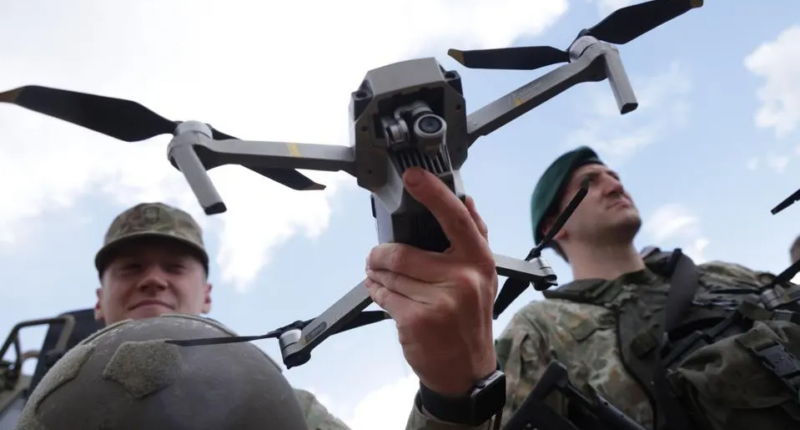The U.S. Commerce Department’s Bureau of Industry and Security (BIS) is evaluating new rules to restrict or ban Chinese-manufactured drones, citing potential national security threats. This decision could have far-reaching implications, as Chinese companies, particularly drone giant DJI, dominate over 75% of the U.S. drone market, including more than 90% of hobbyist drones. A ban would disrupt the industry and leave a significant gap in the market.
DJI, headquartered in Shenzhen, became an industry leader in the 2010s by outpacing American competitors like 3D Robotics and Skydio. The release of DJI’s Phantom drone in 2013 revolutionized the sector, offering user-friendly aerial photography tools at affordable prices. DJI’s vertical integration strategy and substantial investment in research and development allowed the company to innovate rapidly and market advanced products across multiple industries, from filmmaking to agriculture.
However, concerns about cybersecurity and national security have shadowed DJI’s success. In 2017, the U.S. Army banned DJI drones, citing “cyber vulnerabilities.” A year later, the Pentagon prohibited the use of all commercial drones, emphasizing security risks. Recent legislation, including the FY20 National Defense Authorization Act (NDAA), underscores these concerns, while DJI faces scrutiny for alleged ties to the Chinese government—a claim the company vehemently denies.
The Commerce Department’s proposed rule stems from fears that Chinese-made drones could facilitate espionage. These devices routinely connect to manufacturers for firmware updates, potentially enabling data collection, including flight logs and imagery. This capability raises alarms about the potential for sabotage or interference with critical U.S. infrastructure.
DJI has fought back against accusations, filing a lawsuit after being labeled a “Chinese military company” by the Pentagon. Meanwhile, the Senate has given DJI a year to prove it poses no security risk, but skepticism remains. The company’s products are also being deployed in conflict zones like Ukraine, often hacked to neutralize perceived vulnerabilities.
The Commerce Department has invited public comment to assess whether Chinese-made drones present “undue risks” to the U.S. digital economy, infrastructure, and communications systems. If implemented, the restrictions could force a shift in the U.S. drone market, spurring demand for domestic alternatives while deepening the divide between the U.S. and China in emerging technologies.









